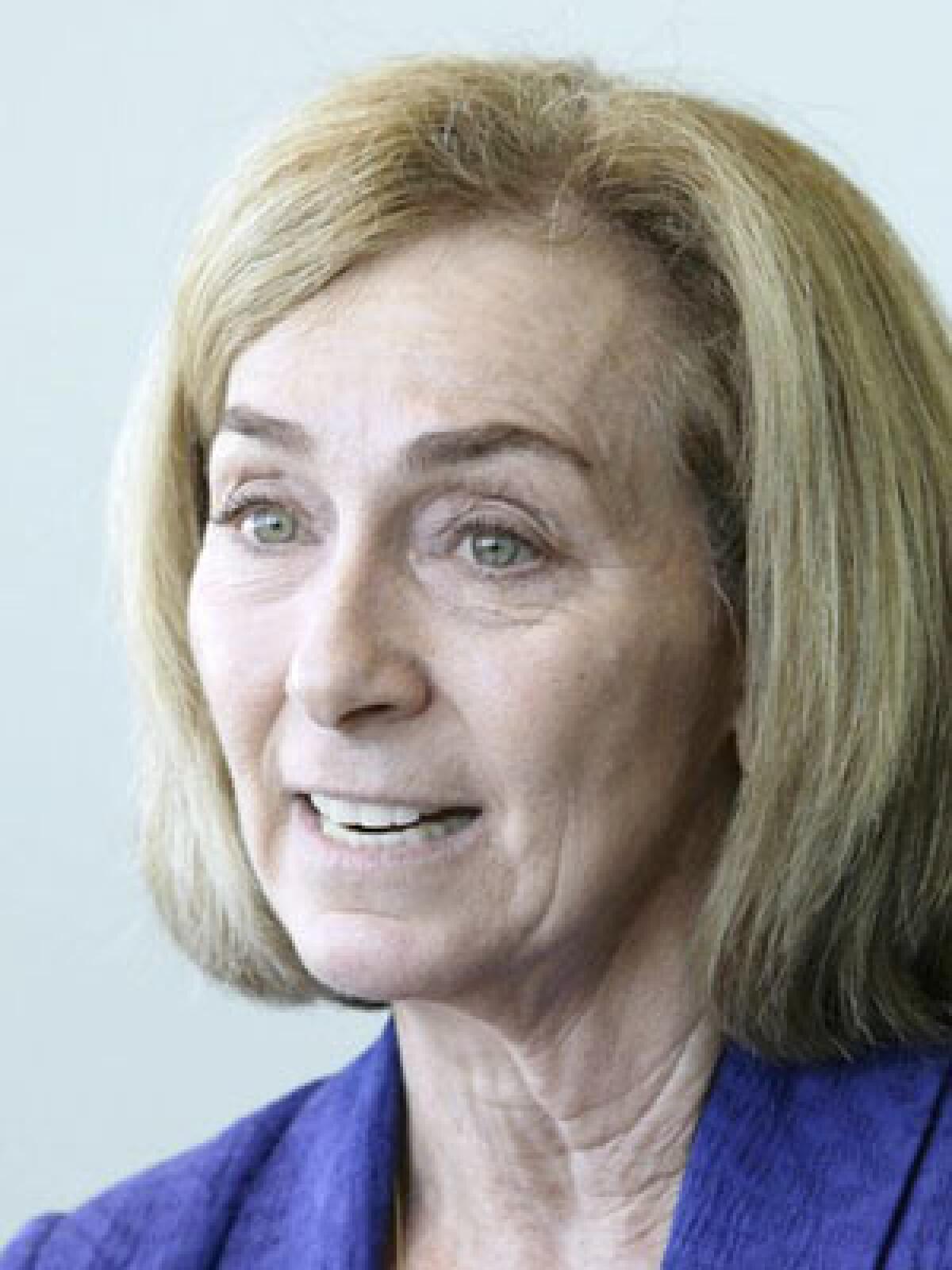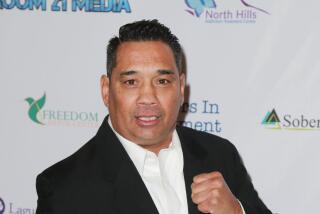Some Gov. Jerry Brown appointees get pension and paycheck

Ann Ravel, the chairwoman of the California Fair Political Practices Commission, said she rightfully earned her pension after working as an attorney for Santa Clara County, whose retirement benefits come from CalPERS, from 1976 until her retirement in 2009.
Reporting from Sacramento -- Every month, Ann Ravel gets a paycheck from her salary as chairwoman of California’s ethics watchdog agency and a second, bigger check from her public pension as a retiree.
The double payments, which total more than $305,000 a year, represent the kind of costly pension perk that Gov. Jerry Brown has vowed to rein in.
But since he assumed office nine months ago, Brown has appointed numerous officials like Ravel to state jobs in which they can simultaneously collect a full salary and a public pension.
One is earning $234,000 in combined wages and pension to serve on California’s state’s unemployment board, which the governor wants to eliminate. Six Brown appointees to the state’s parole board are layering wages atop pensions.
“That should be against the law,” said Marcia Fritz, a certified public accountant and president of the California Foundation for Fiscal Responsibility, which seeks to end what she called “double dipping.”
“It violates the whole premise of having a retirement program,” she said.
California law forbids rank-and-file state employees to draw full-time government wages and state-administered retirement benefits at the same time. But an exemption exists for political appointees to more than a dozen powerful boards and commissions, where members can legally earn both.
Taxpayers are footing the bill. The state treasury must cover $3.51 billion this year for California’s beleaguered pension system, known as CalPERs, though payments to active state employees account for a fraction of that sum.
As a candidate, Brown pledged to stop pension abuses. In March, he rolled out a 12-point plan for reducing pension costs that included “limits on post-retirement public employment.”
But only six weeks earlier, the governor had appointed Ravel, 62, to chair the Fair Political Practices Commission.
Because Brown has not finalized his pension plan, spokeswoman Elizabeth Ashford said, “We are not commenting on what may be proposed in it.”
But she defended the administration’s appointment of retirees to state jobs.
“Our position is that it’s critical to bring the best and most experienced people onto boards and commissions,” she said.
Ravel, for her part, said she rightfully earned her pension after working as an attorney for Santa Clara County, whose retirement benefits come from CalPERS, from 1976 until her retirement in 2009.
“I could be sitting at my home in Los Gatos and taking my PERs check and working for a private corporation and making a ton of money,” Ravel said. “But I am committed to public service.”
“I feel like the taxpayers are getting their money’s worth from me,” she said.
Ravel also pointed out that one of her predecessors as ethics commission chair, Ross Johnson, a former GOP lawmaker, garnered both pension and salary.
“The Republicans were doing it too,” said Ravel, a Democrat.
The same day Brown appointed Ravel, he also tapped Robert Dresser as the $132,179-a-year chairman of the state’s Unemployment Insurance Appeals Board.
Dresser, 70, defended taking the salary while receiving $102,955 in annual pension payments after decades as a state attorney.
“What I am doing is consistent with state policy and law,” he said.
It is unclear from state records how often such appointments occur, but previous governors also made them.
In 2007, Gov. Arnold Schwarzenegger named Robert Doyle to the state parole board. Doyle, who was chairman until he left the board in June, supplemented his $115,910 state salary with an annual $193,649 government pension from his years in the Riverside County Sheriff’s Department.
Doyle had publicly endorsed both of Schwarzenegger’s bids for governor, in 2003 and 2006.
Asked about his dual payments before he departed the board, Doyle declined to comment without clearance from the governor’s office. He could not be reached for comment Wednesday.
Nowhere is the dual income as prevalent as at the Board of Parole Hearings. There, eight of the current 11 members — six appointed or reappointed by Brown — collect both pensions and wages.
A preponderance of board members are former sheriffs, prison guards, parole agents and police officers, who can typically retire younger with full pensions than other public workers.
Many governors have favored such appointments to the panel, which decides when the state’s most hardened criminals are eligible for release.
Four parole panelists are receiving pensions that top $100,000 in addition to an $111,845 board salary, state records show.
“They bring a full career’s worth of experience to making decisions that directly impact the safety of California’s communities,” Ashford said.
A group of GOP legislators sought to ban the double earnings in budget negotiations with Brown earlier this year.
When those talks collapsed, Republicans introduced their own measure, but it never received a hearing in the Democratic-controlled Legislature.
Now, taxpayers are stuck “paying for double dipping at the expense of real programs such as education and public safety,” said Sen. Tom Harman (R-Huntington Beach), one of the Republicans who had been in discussions with the governor.
The issue has come before the Legislature before. In 2009, state senators grilled Anthony Kane, a Schwarzenegger appointee to the parole board, about his retirement as a deputy prison warden and his subsequent collection of a pension and board salary.
“That was not my goal, to retire and come back and be a commissioner. That wasn’t the plan,” Kane said, according to a hearing transcript.
The state Senate declined to confirm Kane then. Senate leader Darrell Steinberg (D-Sacramento), one of Kane’s questioners, pledged new legislation to end the exemption for political appointees.
He never introduced such a bill.
More to Read
Start your day right
Sign up for Essential California for news, features and recommendations from the L.A. Times and beyond in your inbox six days a week.
You may occasionally receive promotional content from the Los Angeles Times.






